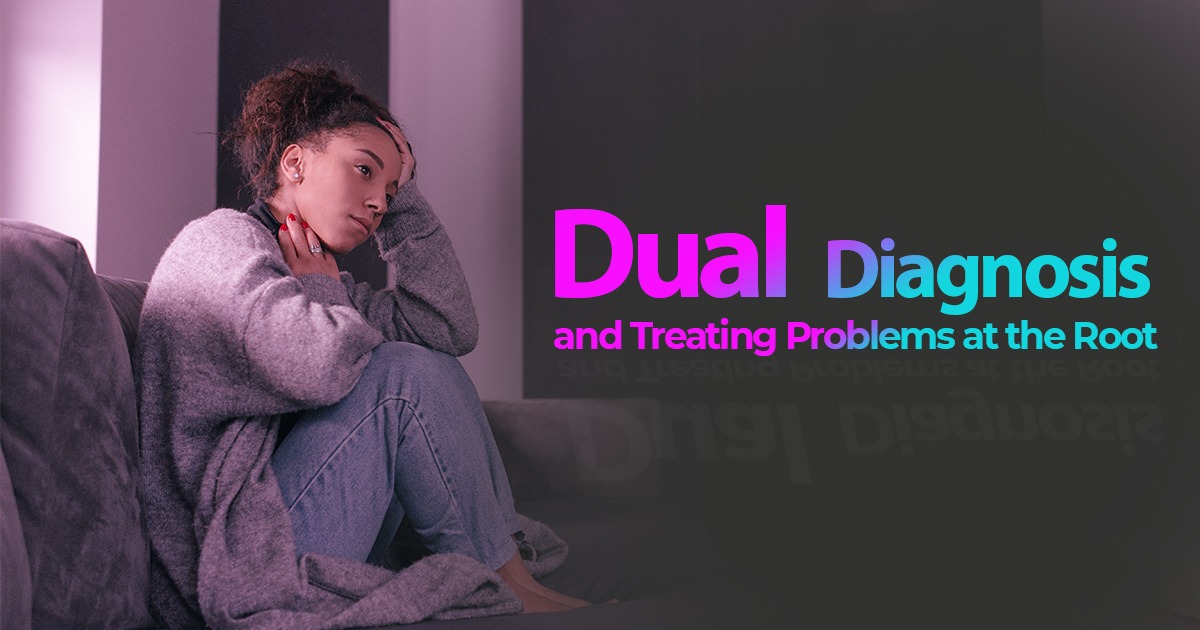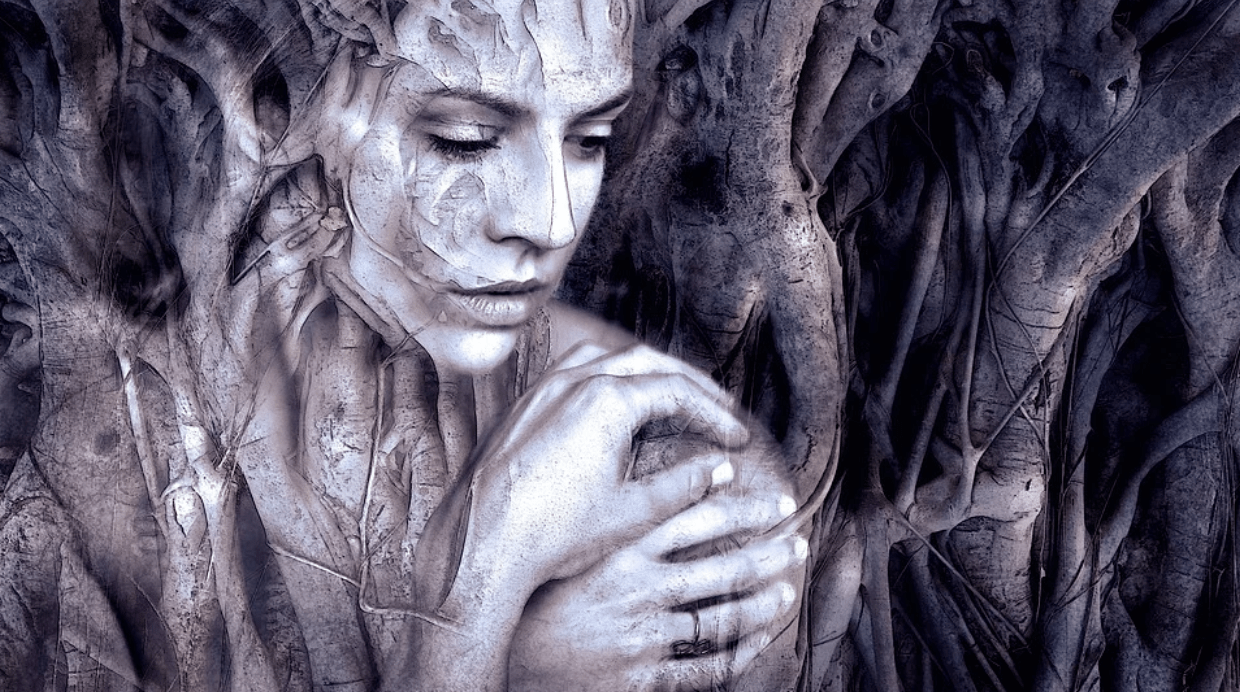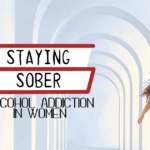
Mental health problems and addiction usually go hand in hand. With rising statistics of these two disorders being simultaneously diagnosed in people, the need for a new term arose.
Read on; in this article, we will explain the term “dual diagnosis” – what it means, how it is diagnosed, what the statistics are pointing at, and the available treatments.
What is Dual Diagnosis?
Dual diagnosis is a term that is used to name dual mental health conditions in which a person battles a mental disorder and addiction (or, as it is academically called, “ substance use disorder.”)
The term “addiction” includes all kinds of addiction – drugs, alcohol, food, sex, video games, gambling, or even work. The other mental health condition or disorder can be general anxiety, bipolar disorder, obsessive-compulsive disorder, depression, or any other mental disorder diagnosed by psychiatrists. It’s important to note that two mental or emotional disorders happening simultaneously are NOT a dual diagnosis. The term is used for the combination of a mental illness and an addiction.
The term itself is very broad, and it doesn’t matter if the addiction or the mental illness came first. The most common case is a dual diagnosis where addiction arises as means to lower or ease untreated symptoms from the mental illness. But, as we will elaborate in the next section, the connection between addiction and mental illness goes deeper.
Furthermore, the severity of the dial diagnosis might vary – a teenager with mild depression and a habit of compulsive eating can be diagnosed with a dual diagnosis. A bipolar person with a relapsing heroin habit can also be diagnosed with a dual diagnosis.
Why Does Dual Diagnosis Happen?
To understand the basic principle of a dual diagnosis, we need to take a look at both the conditions separately, and the combination of the two.
The NIDA (or the National Institute on Drug Abuse) segregates the reasons as follow:
- The two conditions have common risk factors – Early development trauma, genetics, and family history (as well as functionality) play a big role as risk factors for developing both substance abuse and mental disorder. It’s usually the environment (and learned behavior) that sparks the possible transferred genes into active addiction or mental illness.
- Mental illness can lead to a substance abuse disorder – Research has shown that mental disorders increase the chances of developing an addiction. Primarily used as a “medication” for the mental disorder, the addiction is seen as something that can soothe the person and the symptoms. Furthermore, some conditions such as Bipolar disorder (especially mania episodes) or Antisocial Personality disorder increase the possibility of the individual indulging in unlawful behaviors, including drug abuse.
- Substance addiction can cause a worsening of mental health disorders. With the uncalculated behavior that substance abuse brings, the individual is more likely to commit a crime, expose themselves to traumatic events, or cause life-altering situations. That can, in turn, spark or worsen mental illnesses, especially if there is a genetic predisposition for the illness.
The dual diagnosis is most often a cycle, where both the addition and the mental illness contribute and perpetuate one another.
Signs of Dual Diagnosis
If you suspect that you or someone you know might be battling dual diagnosis, these are the signs you should look for:
- Unusual new behavior and change in sentences or word patterns;
- Worse work or school performance; abandoning activities that the person previously enjoyed;
- Closing up and not wanting to communicate with people;
- Leaving behind friends and family and hanging out with new groups;
- Unusual need of money, obtained by either asking for them or stealing;
In people that only have a diagnosed mental illness:
- Sudden wish to stop medications
- Asking for money; possible stealing, and lying
- Change in the way the person speaks and behaves
- Strange new behavior that wasn’t previously displayed as part of the diagnosis
In people that already had an addiction, but not a mental illness:
- Strange new behavior that they didn’t previously display
- Closing up and not wanting to communicate with people
- Change in the way they talk, think, or speak; believing
- Taking an even bigger dosage of their substance of abuse
What the Numbers Show
A survey from 2013 done by the National Survey on Drug Use and Health (NSDUH) came up with some numbers about people with dual diagnoses:
- In 2013 there were around 24 million illicit drug users in the United States
- In the same year, 1 in 5 adults; and 1 in 10 adolescents; has suffered from a mental illness
- Around 1.4% of adolescents had a major depressive episode and substance use disorder
- 3.2% of adults had a mental disorder and substance use disorder
Some of the most often mental illnesses that have risks of addiction are:
- Depression
- Anxiety disorders
- Obsessive-compulsive disorder
- Eating disorders
- Post-traumatic stress disorder
- Personality disorders
- Dissociative identity disorder
There are tens of thousands of people that battle dual diagnosis each year. No matter what the cause of simultaneous occurring of mental illness and addiction, there needs to be a special treatment that can help these individuals work on both conditions.

Treating Problems at the Root
In people with mental illness, the drug or addiction of choice helps with coping with the symptoms from the first diagnosis. Without proper treatment, the risk for addiction relapse is bigger.
Existing addicts who develop a mental disorder will only increase their usage, which will rapidly worsen the symptoms and the progression of the illness.
Only by working on both of the conditions with the help of specialized treatment centers a person with a dual diagnosis can get better.
Following the advice given by the World Health Organization, there is a need for continued and detailed care for people battling a mental health issue and an addiction. Numerous treatment clinics work with broad spectrums of adductions and are equipped to treat patients with Dual Diagnoses. Those rehab facilities can provide the person with an individual treatment plan based on their set of mental and substance abuse disorders.
What is the Dual Diagnosis Treatment Model?
For individuals with Dual Diagnosis to recover, they need to have help in attending and working on both the addiction and the mental illness in treatment centers.
For the best chances of recovery, Dual Diagnosis the professional care of the rehab facility should include:
- Substance abuse specialists and mental health professionals working together
- Psychotherapy or any other kind of therapy that helps the individual in their coping and managing of the conditions
- Prescription medication and therapy based on the individuals’ needs
- Inclusion of spouses, family, friends, and the whole community on the road towards recovery.
- Work in and with support groups
There are addiction treatment specialists that have psychiatric backgrounds, and they can help with both definitive diagnosis and treatment of the dual diagnosis.
A drug rehabilitation center has all kinds of professionals, treatments, therapies, and medicaments that can help the individual.
They should also have intensive, residential treatment programs which can help individuals with severe mental or substance abuse problems.
Seeking Help
Dual diagnosis is a term that is used to describe a combination of two disorders – a mental health one and a substance abuse one. There are more possibilities why are mental illnesses and addictions connected, including mutual risk factors or one condition feeding the appearance of the other. Nonetheless, a dual diagnosis treatment model is available and includes simultaneous work and special care to both the mental illness and the addiction.
If your daughter is struggling with addiction and another mental health issue, call Anchored Tides Recovery at 866-600-7709 to discuss support in Southern California.





























